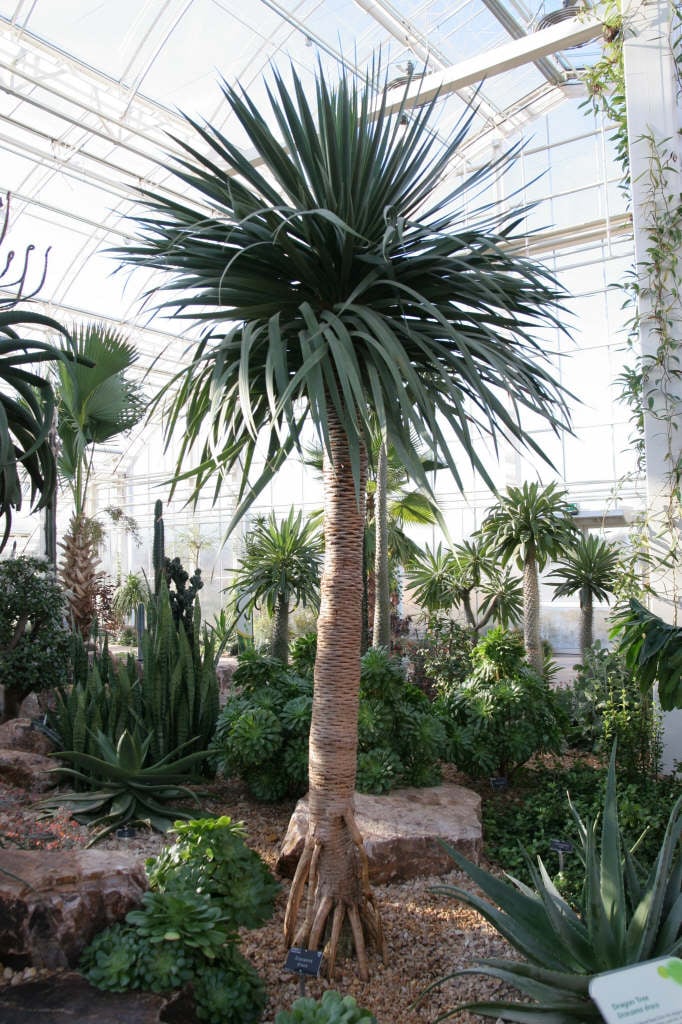Dracaena draco
dragon tree
A slow-growing evergreen tree becoming sparsely branched, with terminal rosettes of sword-shaped leaves to 60cm in length and, on mature plants only, panicles of greenish-white flowers in summer followed by orange-red fruits
Size
Ultimate height
4–8 metresTime to ultimate height
20–50 yearsUltimate spread
2.5–4 metresGrowing conditions
Moisture
Moist but well–drainedpH
Acid, Alkaline, NeutralColour & scent
| Stem | Flower | Foliage | Fruit | |
| Spring | Green | |||
|---|---|---|---|---|
| Summer | Green White | Green | ||
| Autumn | Green | Orange Red | ||
| Winter | Green |
Position
- Full sun
Aspect
South–facing or West–facing or East–facing
Exposure
Sheltered Hardiness
H1CBotanical details
- Family
- Asparagaceae
- Native to GB / Ireland
- No
- Foliage
- Evergreen
- Habit
- Bushy
- Potentially harmful
- Pets (dogs, cats, rabbits, rodents): Harmful if eaten. For further information and contact numbers regarding pets, see the HTA guide to potentially harmful plants
- Genus
Dracaena are evergreen trees, the few branches bearing linear to lance-shaped leaves often crowded towards the tips; on mature plants, small greenish-white flowers may be followed by orange or red berries
- Name status
Correct
- Plant range
- Macaronesia, Morocco
How to grow
Cultivation
Under glass grow in peat-free, loam-based potting compost in full light and shade from hot sun and with moderate humidity. Water freely and apply a balanced liquid fertiliser monthly from spring to autumn and keep just moist in winter. If growth is weak, plants can be cut back to within 15cm of the base in spring. Tolerant of low light levels indoors. See Dracaena for further advice
Propagation
Propagate by seed at 18 to 21°C in spring or root semi-hardwood cuttings and leafless stem sections in spring with bottom heat
Suggested planting locations and garden types
- Patio and container plants
Pruning
No pruning required
Pests
May be susceptible to glasshouse red spider mite and scale insects under glass
Diseases
Generally disease-free
Get involved
The Royal Horticultural Society is the UK’s leading gardening charity. We aim to enrich everyone’s life through plants, and make the UK a greener and more beautiful place.
